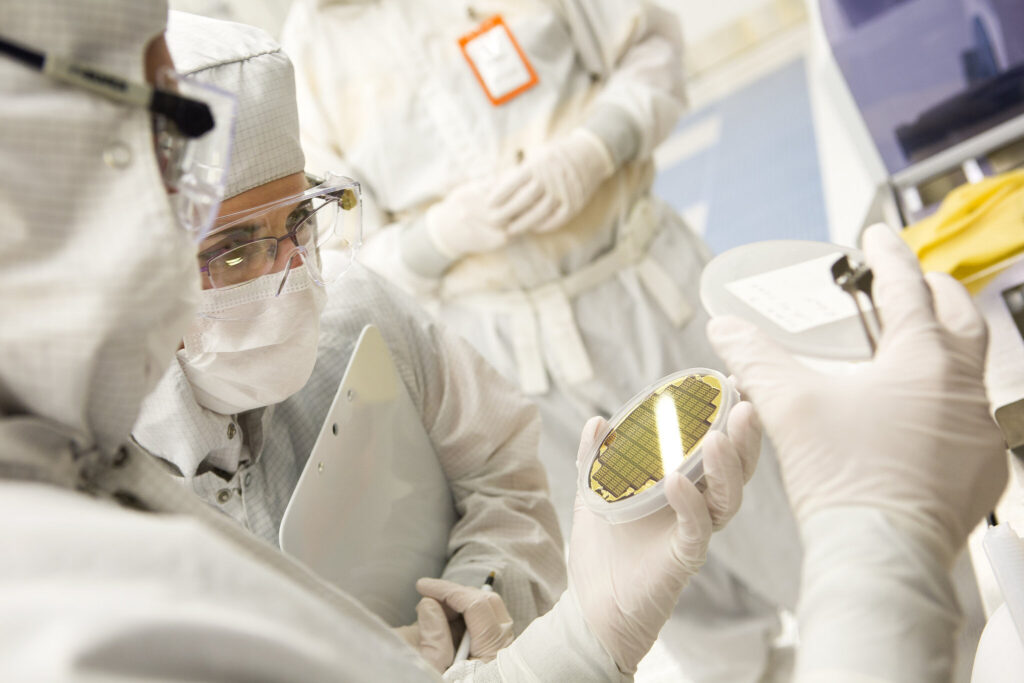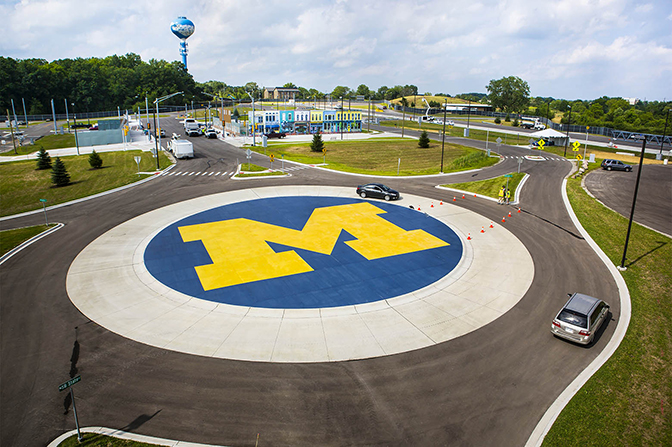Advancing chips for the auto sector is the goal of new Michigan-based initiative
On the heels of the global chip shortage, the University of Michigan is part of a new public-private partnership that will establish a global semiconductor center of excellence in Michigan that focuses on the auto industry.
The Semiconductor Talent and Automotive Research (STAR) initiative is led by semiconductor company KLA and Belgium-based technology innovation hub imec. The Michigan Economic Development Corporation, Washtenaw Community College and General Motors are also founding members. KLA CEO Rick Wallace announced the initiative today at imec’s ITF World event in Antwerp, Belgium.
The initiative will focus on developing the talent base and infrastructure necessary to accelerate advanced semiconductor applications for electrification and autonomous mobility and move the automotive industry forward, according to a KLA news release.
“The STAR initiative is creating, strengthening and sustaining an essential connection between the semiconductor and auto sectors – and it’s doing so at the right place at the right time,” said Santa J. Ono, President of the University of Michigan. “As the EV transition gains momentum, we must ensure that we can develop and manufacture the advanced microelectronics those vehicles will require. This initiative is a critical complement to several major efforts in both semiconductors and mobility already underway at U-M and we look forward to collaborating with our partners to advance and integrate this work.”

Specifically, the Michigan STAR center intends to focus on:
- Accelerating fundamental and advanced research for vehicle electrification and autonomous automotive solutions;
- Developing and translating of innovations in vehicle electrification and autonomous automotive technologies;
- Collaborating with learning institutions, including K-12 and vocational schools, community colleges, four-year colleges and research universities, to enable a Midwest-based skilled talent pipeline;
- Training and retraining programs to prepare the current workforce for modern chip manufacturing and assembly roles; and
- Creating a physical collaboration space, laboratory and training spaces, and incubator funding for related startups.
“KLA is focused on investment in research and development to help address key challenges for automotive semiconductors,” said Rick Wallace, President & CEO of KLA and U-M electrical engineering alumnus. “In 2019, KLA opened a second headquarters in Ann Arbor, putting us closer to automotive customers and the larger Michigan technology ecosystem. The STAR Michigan initiative accelerates our support for talent development, collaboration, and innovation in the region.”
U-M has broad expertise in mobility and semiconductors. The world-class Lurie Nanofabrication Facility supports semiconductor research, hands-on education, and regional economic development. Over the past five years, 95 companies and 150 U-M faculty members have utilized the lab, as well as researchers from 40 other US universities. MAVERIC, the Michigan Advanced Vision for Education and Research in ICs, is a semiconductor collaborative that is pulling together efforts from across the university to support a secure, resilient and innovative domestic semiconductor sector.

On the mobility and autonomous vehicle front, the $130 million University of Michigan Electric Vehicle Center is the latest addition, joining Mcity, the U-M Transportation Research Institute, the Center for Connected and Automated Transportation and the Robotics Department.
This initiative is designed to connect automotive, semiconductor and innovation research initiatives in Europe (Belgium), the United States (Michigan) and Asia (Japan). Each partner will bring relevant expertise to identify and manage programs aligned to the automotive industry, as well as talent development and recruitment.
“One of the most important jobs we have as a community college is to listen to industry partners to understand talent needs and then customize programs to quickly train the current and future workforce,” said WCC President Rose B. Bellanca in a WCC press release. “We stand ready to provide the training and education required to deepen our state’s talent pool with well-qualified technicians to support chip production.”
Gov. Gretchen Whitmer applauded the announcement and released a statement.
“The decision by KLA and imec to establish this new STAR center of excellence in Michigan underscores our global leadership as a hub for industry and innovation with a robust manufacturing, research and education infrastructure, and builds on our leadership in this high-tech, high-growth industry,” said Governor Whitmer. “I am proud that Michigan was selected as the location for the STAR Initiative’s North American research center, proving that we have the skilled workforce, growing economy, and strong business-friendly environment necessary to win projects from one of the world’s most innovative companies. Let’s keep working together to bring advanced manufacturing and critical supply chains home as we create economic opportunity in every region and build a brighter future for Michigan.”
 MENU
MENU 
